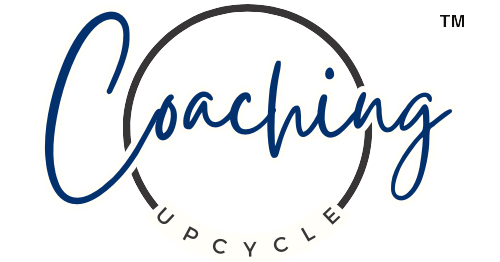
Why career coaching is important for professional growth?
In the present-day fast-changing employment environment, career coaching has turned out to be an invaluable tool for anyone wishing to improve their professional growth. Different from old-school career advice, career coaching provides customized and all-round approach that meets each person’s needs. This blog highlights the many-sided benefits of career coaching, especially on its importance in advancing professional development through evidence-based perspectives and real-life instances.
Personalized Career Guidance
Unlike normal career advice, a career coach gives customized instructions based on your strengths and goals. A career counsellor also works with you to find out what you want and creates a plan that meets your personal and work aims. The International Coaching Federation (ICF) and the European Mentoring and Coaching Council (EMCC) ran a survey showing 80% of clients felt more self-confident and 70% saw improved job performance due to this support. For example, a person wanting to get better at public speaking would receive different counselling from someone moving from a technical job to a leadership role. Websites like CareerFoundry and Forbes offer details on how career coaching can be customized to suit individual needs.
Enhanced Self-Awareness
A major part of career coaching is about self-attention or more focus on oneself. A career coach helps someone understand their own qualities which means knowing their strengths, weaknesses, and areas they need to improve in their work or career choices. According to a study included in the Journal of Career Assessment, being self-aware leads to making improved career decisions and becoming more satisfied with different professions. Myers-Briggs Type Indicator (MBTI) tools and StrengthsFinder are often applied to define personality traits that allow individuals make their careers more corresponding to their unique abilities and core values.
Accountability and Motivation
Career coaches ensure that you stay on track with your goals. By making sure that they keep in touch regularly, your coach helps you to remain focused, persistent and not to indulge distractions or procrastination that may hamper your progress. People have a 65% likelihood of completing something if they commit to doing it. However, once an individual commits to another person by having specific accountability appointments, then the chances of being successful increase by 95%. Based on such articles as those featured in Harvard Business Review, performance and objectives’ acquisition can immensely improve through this kind of responsibility.
Overcoming Career Challenges
Every job has its own problems, but with a career coach, one can manage these challenges . A career about coach provides the needed support in tackling normal workplace problems like disagreements, handling change, or missing skills. An example from Psychology Today shows how career coaching helped someone move to a new industry demonstrating the useful effects of a professional guide during hard times.
Improved Job Satisfaction
Nothing matches the job satisfaction of choosing a career based on personal values and interests. Find out what you really want with career coaching and follow it in your career. In a study by the Society for Human Resource Management (SHRM), job satisfaction is much greater if a person thinks that what he/she is doing at work is based on his/her personal beliefs. This alignment leads to higher job satisfaction, because one is paid for doing what they love. The American Psychological Association also discusses the importance of maintaining clear values in the workplace. They extend this discussion to explain how career coaching enhances job satisfaction.
Adaptation to Industry Changes
In today’s rapidly changing employment market it is important to keep yourself updated on industry trends which requires regular adjustment. Career coaches reveal current trends as well as help you develop skills required for relevance retention. This enables you remain prepared at all times for changes and advancements in industries. The 2018 Deloitte report shows that industries are evolving quickly and adaptability requires continuous learning. Websites such as LinkedIn Learning, Coursera among others, provide courses which will enable you to stay relevant in your profession.
Long-Term Career Planning
Career coaching offers a key perk: it helps you craft a game plan for lasting job success. Your coach guides you to set big goals and map out how to nail them. This smart approach keeps your career on track and moving forward. Indeed Career Guide says long-range job planning packs a punch for ongoing work wins. A solid career blueprint does more than point the way - it lets you check your progress and tweak things as needed. With this roadmap, you're not just drifting - you're steering your career where you want it to go. Your coach helps you plot each step so you don't miss any chances to climb that career ladder. It's like having a GPS for your work life showing you the best route to your dream job.
Cultivating Emotional Intelligence
Emotional smarts play a big role in job success. Career coaches push folks to build these skills. Why? They help you deal with others and lead better. Research published in the journal Emotion highlights that emotional intelligence is a significant predictor of job performance and leadership effectiveness. Want to level up your career and grow as a person? Harvard Business Review offers tips to boost your emotional know-how. It's key to moving up the ladder and becoming your best self. Managers who get people's feelings tend to have happier teams. Plus when you understand yourself better, you make smarter choices. So, investing time in EQ pays off big time in the long run. It's not just about being nice - it's about being effective in today's complex work world.
Cultural Competency in Global Workplaces
The modern world demands workers who excel in diverse settings. Career coaches build cultural know-how. They teach respect for different customs and smooth teamwork across cultures. The Cultural Intelligence Center found that staff with strong cultural smarts do better overseas and in their jobs overall. Places like the Cultural Intelligence Center and DiversityInc show why cultural skills matter at work. This proves how career coaching boosts this key talent. Coaches help people grasp and honor cultural gaps. Workers learn to thrive in mixed teams from all over. Career guides unlock the power to navigate our connected planet with ease.
Mindfulness and Stress Management
Your routine needs mindfulness. It cuts stress and boosts focus and output. Career coaches teach meditation deep breathing, and time tricks. These help you juggle work and life better. The American Psychological Association found mindfulness works. It lowers stress and ups well-being. Headspace and Calm apps have guided sessions. Coaches use these to lift your personal and work life. These apps make a big splash in how we handle stress. They're changing the game for many folks. People find them handy for quick breaks during busy days. Some even say these apps have turned their lives around. It's wild how a few minutes of quiet can make such a difference. But don't just take my word for it - give it a shot and see what happens!
Resilience Building in Career Setbacks
Career coaches equip you with tools to rebound from job troubles. They teach you to see failures as chances to learn and grow. This helps you build grit and keep moving forward in your career. The American Psychological Association offers tips on how to stay tough when work gets hard. Take a pro who lost their job. A coach can help them craft a comeback plan, pick up new tricks, and jump back into the job hunt feeling ready. Coaches show you how to turn a setback into a setup for success. They give you ways to shake off the dust and get back in the game with fresh fire in your belly. It's all about turning those lemons into some sweet career lemonade!
Creating a Work-Life Harmony
Career coaches zero in on striking a sweet spot. They want you to rock your job without burning out. These pros show you how to draw lines, juggle your schedule, and weave self-care into your career game plan. This recipe cooks up a life that's both smooth and satisfying. Harvard Business Review says nailing this work-life groove is a must for killing it at work long-term and feeling good about life. What's the secret sauce? Flexible hours, time-taming tricks, and putting up clear fences between office stuff and your own time. These ingredients whip up the perfect career-life blend.
Ethical Decision Making
It is important to handle difficult ethical problems at work with honesty and good judgment to grow in your career. Career coaches help you build solid skills in making ethical choices making sure your career stands on honesty and trust. A study by the Ethics & Compliance Initiative says workers guided by firm ethical rules are more likely to have long-lasting and successful careers. The Ethics & Compliance
Initiative offers information on making ethical decisions at work showing how important ethics are to succeed in your profession.
Sustainable Career Practices
Applying green and lasting methods in your work life leads to global wellness. Career coaching promotes the use of lasting methods aiding you in making choices that are good for the environment. These choices help both your profession and the planet. According to a report by the World Economic Forum, being sustainable is more and more essential in growing a career and achieving business success. The Sustainable Business Network provides tools on lasting business methods highlighting how important sustainability is in career coaching.
Conclusively, career coaching presents several benefits crucial enough for any professional growth to say they are indispensable. Career coaching is able to significantly influence one’s life through customised counsel, increased self-awareness, greater resilience development as well as improvement in intercultural competence. Investing in career coaching gives you the necessary equipment and understanding that will steer the direction your profession takes.
References:
CareerFoundry. (n.d.). What Does a Career Coach Do? Retrieved from CareerFoundry
Forbes. (2020). The Value of Career Coaching and Finding the Right Coach for You. Retrieved from Forbes
Journal of Career Assessment. (n.d.). Research on Self-Awareness and Career Decision-Making
Myers-Briggs Type Indicator (MBTI). (n.d.). Retrieved from MBTI Gallup. (n.d.). StrengthsFinder. Retrieved from Gallup
StrengthsFinderAmerican Society for Training and Development (ASTD). (n.d.). The Importance of Accountability in Goal Achievement. Harvard Business Review. (2015). 5 Ways to Hold Yourself Accountable. Retrieved from Harvard Business Review (https://hbr.org/2022/02/3- strategies-for-holding-yourself-accountable)
Psychology Today. (2019). How to Overcome the Biggest Challenges in Career Transition. Retrieved from Psychology Today
Society for Human Resource Management (SHRM). (n.d.). Research on Job Satisfaction and Values Alignment.
American Psychological Association. (2013). The Role of Values in Job Satisfaction. Retrieved from American Psychological Association Deloitte. (n.d.). Industry Trends and the Importance of Adaptability. (https://www.deloitte.com/global/en/our-thinking/insights/industry/ technology/focus-areas-to-accelerate-digital-transformation.html) LinkedIn Learning. (n.d.). Retrieved from LinkedIn Learning Coursera. (n.d.). Retrieved from Coursera
Indeed Career Guide. (n.d.). What is Long-Term Career Planning? Retrieved from Indeed Career Guide
Emotion. (n.d.). Research on Emotional Intelligence and Job Performance.
Harvard Business Review. (2015). Emotional Intelligence Has 12 Elements. Which Do You Need to Work On? Retrieved from Harvard Business Review
Cultural Intelligence Center. (n.d.). Research on Cultural Intelligence and Job Performance. Retrieved from Cultural Intelligence Center DiversityInc. (n.d.). Retrieved from DiversityInc
American Psychological Association. (n.d.). Research on Mindfulness and Stress Reduction.
Headspace. (n.d.). Retrieved from Headspace
Calm. (n.d.). Retrieved from Calm
American Psychological Association. (n.d.). Resources on Building Resilience.
Psychology Today. (n.d.). Coping with Career Setbacks. Retrieved from Psychology Today
Harvard Business Review. (n.d.). Achieving Work-Life Balance. Retrieved from Harvard Business Review
Ethics & Compliance Initiative. (n.d.). Resources on Ethical Decision Making. Retrieved from Ethics & Compliance Initiative
World Economic Forum. (n.d.). Report on Sustainability and Career Development.
Sustainable Business Network. (n.d.). Retrieved from Sustainable Business Network
This blog post incorporates insights and data from reputable sources such as the International Coach Federation (ICF), the European Mentoring and Coaching Council (EMCC), the Journal of Career Assessment, the American Society for Training and Development (ASTD), and various well-known publications and organizations.
